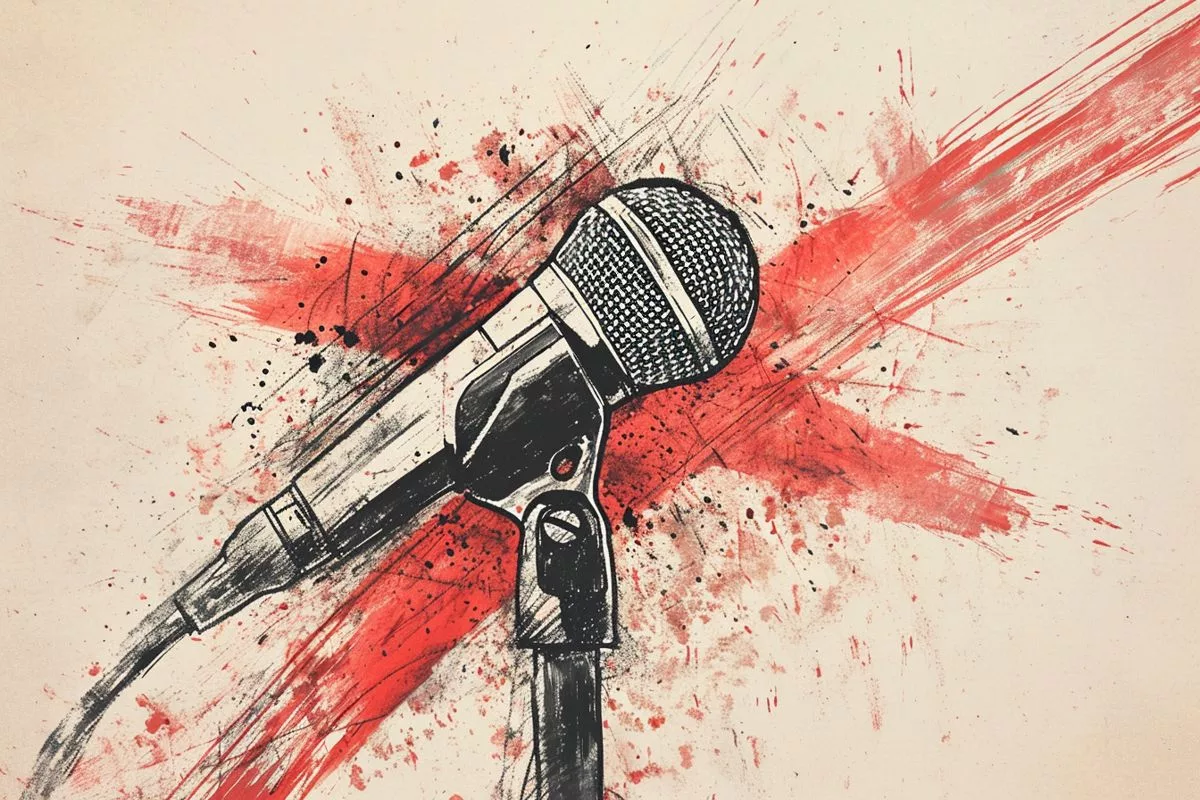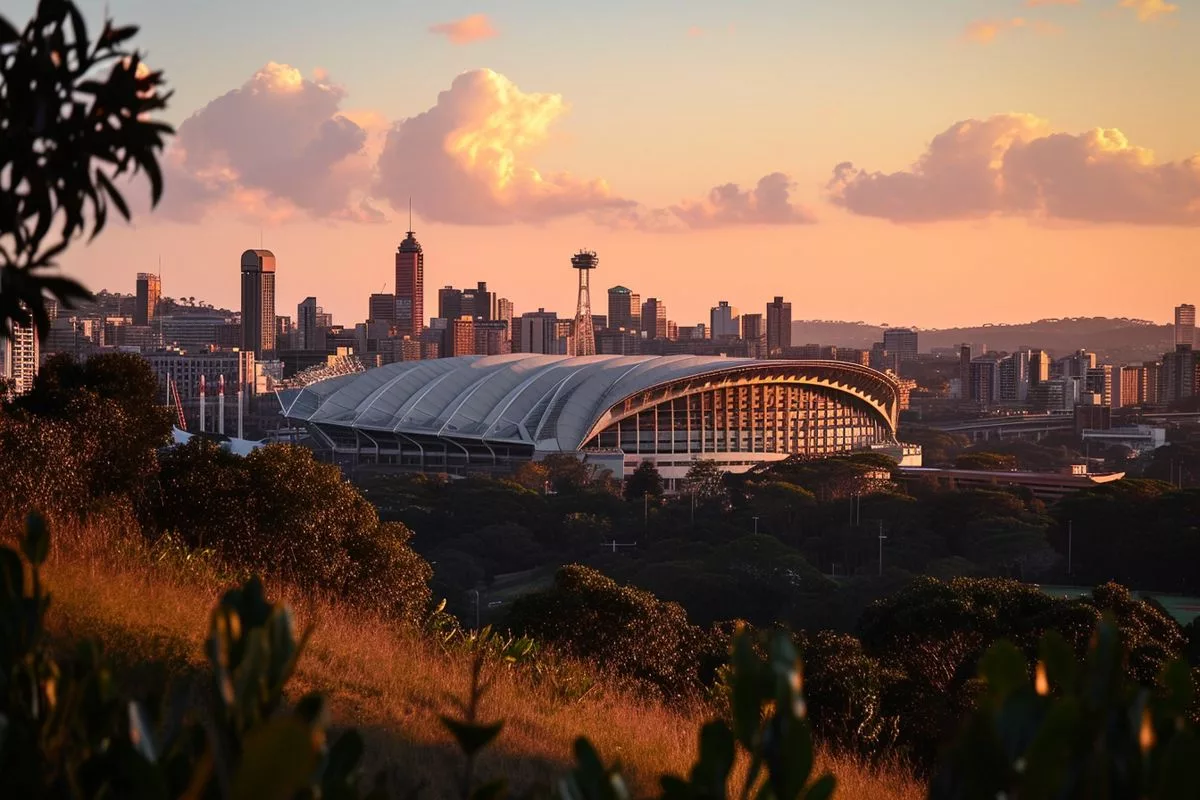Ngizwe Mchunu, a former radio personality, recently made controversial comments towards Julius Malema, the leader of the Economic Freedom Fighters (EFF). This provoked an adverse reaction and resulted in the withdrawal of an endorsement contract by an automobile brand, sparking discussions about responsible speech. The incident highlights the importance of responsibility and the potency of speech, particularly in the political theatre where the impact of language is potent. It serves as an important lesson in responsibility, where public figures must be mindful of the impact their words can have on society, particularly in a multicultural society like South Africa where fostering unity is a top priority.
In today’s constantly changing media landscape, the line between celebrity and notoriety can often become blurred. Ngizwe Mchunu, a former Ukhozi FM radio personality, recently found himself under intense public scrutiny for controversial comments aimed at Julius Malema, the leader of the Economic Freedom Fighters (EFF). Mchunu’s biting words towards Malema provoked an adverse reaction that culminated in the withdrawal of his endorsement contract by an automobile brand, igniting discussions about the repercussions of public figures uttering incendiary statements.
Divisive Language Can Carry Tangible Repercussions
Mchunu’s ordeal serves as a stark warning of how rapidly public support can evaporate when conversation veers into the realm of derogatory remarks. The particulars of Mchunu’s heated comments have made rounds on various social media platforms, garnering mixed public sentiment. However, they underscore the fact that divisive language can carry tangible repercussions.
South Africa’s Commitment to Unity and Tolerance
South Africa’s intricate history has consistently strived to nurture an environment of inclusivity and tolerance, setting Mchunu’s remarks in an even more controversial light. The incident has sparked a public outcry, with individuals from all corners of the public realm vociferously denouncing tribalism and any discourse that could potentially foment division among South Africa’s diverse population. This collective reaffirmation of South Africa’s commitment to democratic values and the repudiation of any dialogue that undermines national unity reflects the country’s continued stride towards unity and mutual respect.
Responsibility and the Potency of Speech
As a public figure, Mchunu’s words bear influence, and the ensuing events have served as a stark reminder of how this influence should be judiciously exercised, particularly when cognizant of the diverse South African audience. The incident highlights the importance of responsibility and the potency of speech, particularly in the political theatre where the impact of language is potent.
Lessons in Responsibility
South Africa’s robust relationship with the European Union is an important element of its global identity. However, the backbone of its strength resides within its own borders, in the peaceful cohabitation of its citizens. The Mchunu incident serves as an important lesson in responsibility, where public figures must be mindful of the impact their words can have on society.
In conclusion, the Mchunu incident underscores the importance of responsible speech in a multicultural society like South Africa, where fostering unity and honouring the myriad of cultures and languages is a top priority. It is a reminder of the power of language, particularly in the public sphere, and how it can impact individuals and society as a whole.
What were Ngizwe Mchunu’s controversial comments about Julius Malema?
The specifics of Ngizwe Mchunu’s comments towards Julius Malema have not been detailed in the article. However, the comments were deemed derogatory and divisive, resulting in an adverse reaction from the public.
What is the impact of public figures’ speech on society?
Public figures have a significant influence on society, and their speech can have both positive and negative impacts. Irresponsible and divisive speech can promote societal division and damage public figures’ reputation. Responsible speech, on the other hand, can foster unity, inclusivity, and respect among diverse communities.
What is South Africa’s commitment to unity and tolerance?
South Africa’s intricate history has consistently strived to nurture an environment of inclusivity and tolerance, setting a commitment to democratic values and repudiation of any dialogue that undermines national unity. The country’s continued stride towards unity and mutual respect reflects its dedication to fostering an environment of inclusivity and respect in its diverse population.
What is the importance of responsibility and the potency of speech?
The Mchunu incident highlights the importance of responsibility and the potency of speech, particularly in the political theatre where the impact of language is potent. Public figures must be mindful of the impact their words can have on society, particularly in a multicultural society like South Africa, where fostering unity is a top priority.
What lesson can we learn from the Mchunu incident?
The Mchunu incident serves as an important lesson in responsibility, where public figures must be mindful of the impact their words can have on society. It is a reminder of the power of language, particularly in the public sphere, and how it can impact individuals and society as a whole. The incident underscores the importance of responsible speech in a multicultural society like South Africa, where fostering unity and honouring the myriad of cultures and languages is a top priority.









